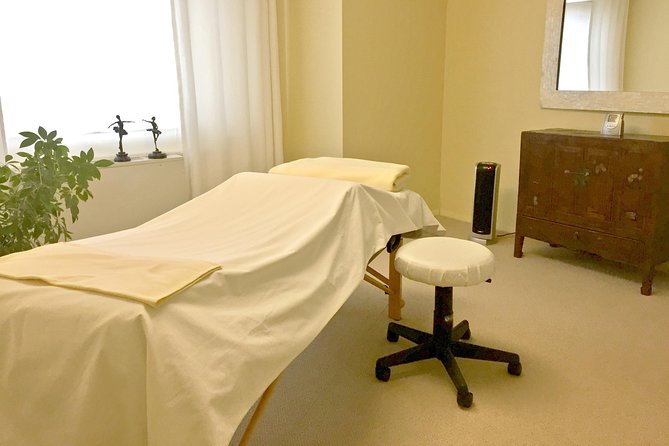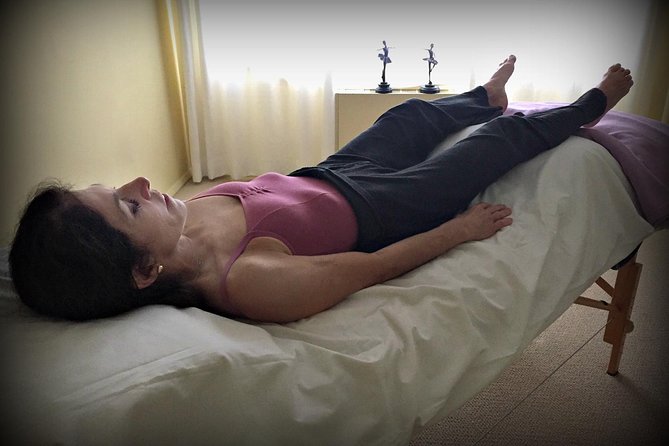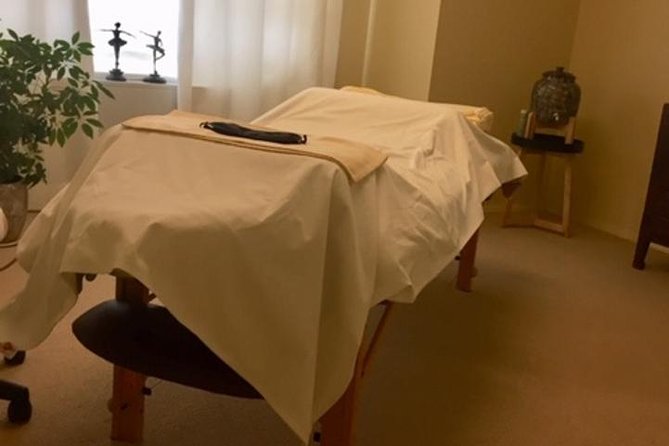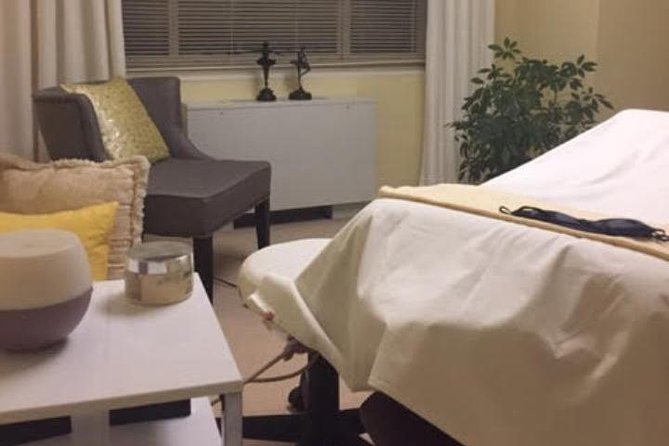Reiki energy healing is a centuries-old practice that’s gaining popularity as a natural approach to wellness. During a Reiki session, a trained practitioner uses gentle, non-invasive hand placements to channel universal life force energy and promote the body’s natural healing abilities. Clients often experience deep relaxation, reduced stress, and improved emotional balance. While the specific effects can vary, many leave the session feeling rejuvenated and with a heightened sense of clarity. For those curious to explore the potential benefits of Reiki, understanding the process and what to expect can make the experience more rewarding.
Key Points

- Reiki energy healing sessions typically involve a practitioner using gentle hand placements to facilitate the flow of universal life force energy.
- Sessions usually last around 60 minutes and take place in a quiet, comfortable setting to promote relaxation and healing.
- Clients remain fully clothed during the session, and the practitioner may incorporate complementary techniques like aromatherapy or visualization.
- Reiki is believed to help reduce stress, alleviate pain, and enhance overall well-being, though individual experiences may vary.
- When choosing a Reiki practitioner, it’s important to consider their credentials, experience, and communication skills to ensure a positive and effective session.
What Is Reiki Energy Healing?

Originating from Japan, Reiki is a holistic energy healing practice that aims to restore balance and well-being by channeling universal life force energy.
Practitioners use a light, non-invasive touch to guide this energy and promote the body’s natural healing abilities. Reiki is believed to reduce stress, alleviate pain, and enhance overall relaxation.
It’s a complementary therapy that’s often used alongside conventional medical treatments. During a Reiki session, the practitioner places their hands on or near the client’s body, allowing the energy to flow and address areas of concern.
The gentle, calming effects of Reiki can help individuals achieve a state of deep relaxation and inner peace.
You can also read our reviews of more tours and experiences in Maryland.
Benefits of Reiki Energy Healing

Reiki energy healing offers a range of benefits if you’re after holistic well-being. By promoting relaxation, reducing stress, and supporting the body’s natural healing processes, Reiki can help alleviate a variety of physical, emotional, and mental concerns.
| Benefits of Reiki | |
|---|---|
| Stress Reduction | Reiki’s calming effects can lower blood pressure and heart rate, promoting a sense of peace and well-being. |
| Pain Management | Reiki may help alleviate chronic pain, migraines, and other discomforts by reducing inflammation and promoting healing. |
| Emotional Balance | Reiki can help individuals process emotions, find inner calm, and cultivate a more positive mindset. |
| Improved Sleep | Reiki’s relaxing influence can help individuals fall asleep more easily and experience deeper, more restorative sleep. |
Preparing for the Reiki Session
Preparing for the Reiki session involves a few simple steps to ensure a comfortable and meaningful experience. First, dress in loose, comfortable clothing that allows easy access to the body. Next, avoid heavy meals or stimulants before the session, as this can interfere with the energy flow.
It’s also important to:
- Arrive with an open mind and willingness to receive the healing energy
- Communicate any concerns or preferences to the practitioner
- Stay hydrated and nourished after the session to support the integration of the energy
- Be patient and trust the process, as each person’s experience can vary
- Avoid scheduling other activities immediately after the session to allow time to rest and reflect.
The Reiki Energy Healing Process

The Reiki energy healing session typically begins with the practitioner guiding the recipient to a comfortable, quiet space. Once settled, the practitioner will then perform a series of gentle hand placements on or near the recipient’s body. This allows the universal life force energy to flow and promote relaxation, balance, and well-being. Throughout the session, the practitioner may also use complementary techniques like:
| Technique | Description |
|---|---|
| Aromatherapy | Use of essential oils to enhance the experience |
| Visualization | Guiding the recipient through calming mental imagery |
| Breathing Exercises | Helping the recipient achieve deeper relaxation |
| Sound Therapy | Incorporating soothing music or chimes |
The Reiki session usually lasts around 60 minutes, allowing ample time for the recipient to fully experience the restorative benefits.
Aftercare and Integration
After the Reiki energy healing session, the practitioner will typically provide the recipient with some aftercare guidance.
This may include:
-
Recommendations to rest, drink water, and engage in gentle movement to help integrate the energy.
-
Suggestions to pay attention to any physical, emotional, or energetic shifts experienced in the days following the session.
-
Advice to journal, meditate, or engage in other self-care practices to process the session.
-
Guidance on how to continue cultivating the Reiki energy in daily life.
-
Information on when to schedule a follow-up session, if desired, to deepen the healing work.
The aftercare and integration process is an essential part of the Reiki experience, helping the recipient make the most of the session’s benefits.
Choosing a Reiki Practitioner
When selecting a Reiki practitioner, it’s important to consider their level of training, experience, and approach to the practice. A good practitioner should be able to explain Reiki clearly and guide you through the process. They should also create a safe, comfortable environment for the session.
| Factors | Considerations |
|---|---|
| Credentials | Look for practitioners certified by reputable Reiki organizations. |
| Experience | Ask about their years of practice and the number of clients they’ve served. |
| Approach | Understand their philosophy and how they tailor sessions to individual needs. |
| Communication | Ensure they listen attentively and address any concerns you may have. |
Choosing the right Reiki practitioner can enhance the benefits of your healing session.
Frequently Asked Questions
Prospective clients often have various questions about the Reiki energy healing session. Here are some of the most frequently asked questions:
-
What can I expect during the session? The session typically involves the client lying fully clothed on a massage table, while the Reiki practitioner gently places their hands on or above the client’s body, allowing the universal life force energy to flow.
-
How long does a session last? A standard Reiki session is usually 60-90 minutes long, providing ample time for the client to fully experience the benefits.
-
Are there any side effects? Most people report feeling deeply relaxed, calm, and rejuvenated after a session, with no negative side effects.
-
Can I benefit from Reiki if I’m new to it? Absolutely! Reiki is gentle and can be beneficial for people of all ages and backgrounds, regardless of prior experience.
-
How do I choose a qualified Reiki practitioner? Look for a practitioner who’s certified, experienced, and has a welcoming, professional demeanor.
Frequently Asked Questions
How Long Does a Reiki Session Typically Last?
Reiki sessions typically last 60 to 90 minutes. The length may vary depending on the practitioner’s recommendations and the client’s needs, but most sessions provide a comprehensive energy balancing experience within this timeframe.
What Should I Wear During the Reiki Session?
During the session, it’s recommended to wear comfortable, loose-fitting clothing that won’t restrict movement. Avoid items with zippers, buttons, or anything that may interfere with the energy flow. The goal is to feel relaxed and at ease.
Can I Receive Reiki if I Have a Medical Condition?
Yes, individuals with medical conditions can typically receive Reiki. It’s best to consult with the Reiki practitioner beforehand to discuss any specific needs or concerns. They can customize the session to ensure it’s safe and beneficial for the client.
Is Reiki a Substitute for Traditional Medical Treatment?
Reiki is not a substitute for traditional medical treatment. It’s a complementary therapy that may help reduce stress and promote relaxation, but it shouldn’t replace professional medical care for any condition. Consult a healthcare provider before using Reiki.
How Often Should I Receive Reiki Sessions?
The frequency of Reiki sessions depends on one’s needs and goals. Generally, weekly or bi-weekly sessions are recommended, though some may benefit from more or less frequent treatments. It’s best to consult a Reiki practitioner to determine the optimal schedule.
Recap
Reiki energy healing offers a gentle, non-invasive way to promote relaxation, reduce stress, and enhance overall well-being. The calming session can leave clients feeling rejuvenated and balanced. While results may vary, Reiki can be a valuable complement to one’s self-care routine. Those interested should consult a qualified Reiki practitioner to determine if this modality aligns with their personal wellness goals.
More Tour Reviews in Maryland
Not for you? Here's more things to do in Maryland we have recnetly reviewed
- 2 Best Food Tours In Maryland
- 5 Best Private Car With Driver Services In Maryland
- BioMat Session – With Negative Ions, Far Infrared Light – Relax, Energize
- Reiki Energy Healing Session
- Guided Assateague Kayaking and Wildlife Discovery Tour
- Bicycle Rental From Visitor Center Location at Assateague, MD
- Single Sit on Top Kayak Rental at Assateague Island, MD
- Airport Transfer to or From Silver Spring, MD & Reagan Airport(DCA)
- Heart Spa Day Review: A Unique Experience
- Cooking or Baking Lesson With a Maryland Local Karen in Her Home
- Murder Mystery Detective Experience in Towson MD
- Washington Commanders Football Game Ticket at Northwest Stadium
